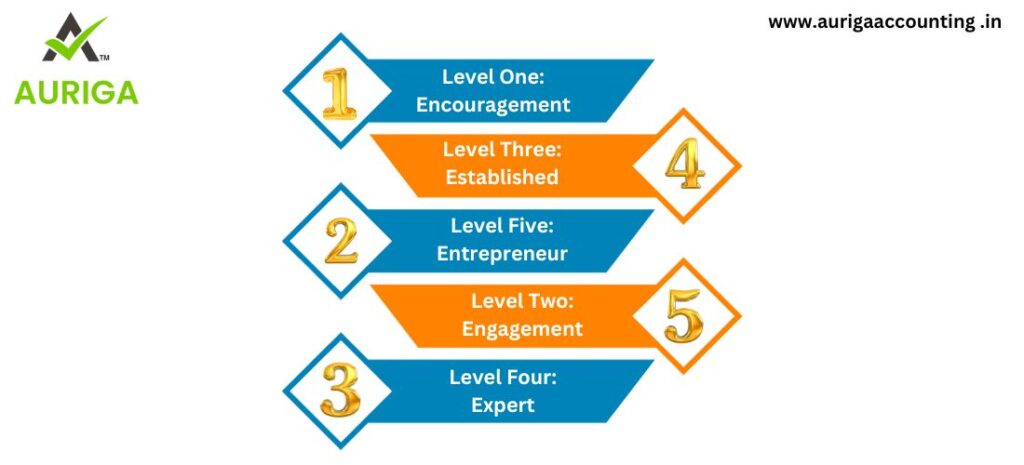
WHY IDEA IS IMPORTANT TO BUSINESS FOR THE ENTREPRENEURS ? NO.1 GUIDE
Introduction
ToggleNEED TO YOU IMPORTANT TO BUSINESS FOR THE ENTREPRENEURS ?
Introduction of business registration
A great business idea is important because it’s the foundation of a successful business. Ideas are the lifeblood of entrepreneurship. They are the sparks of innovation that ignite the fires of business creation and growth. Every successful business, no matter how large or small, began as an idea in the mind of an entrepreneur. Whether it’s a revolutionary tech startup, a cozy neighborhood cafe, or a cutting-edge healthcare solution, it all started with a concept, a vision, an idea.
This article explores the significance of ideas in the world of entrepreneurship. We will discuss how they serve as the foundation for businesses, why idea generation is a critical skill for entrepreneurs, and how ideas can shape the trajectory of a business’s success. To understand this better, we’ll also look into the process of idea validation, nurturing innovation, implementation, scaling, sustainability, measuring success, and overcoming challenges.
The Genesis of Business Ideas
Sources of Entrepreneurial Inspiration
Ideas for businesses can emerge from a multitude of sources. Some entrepreneurs find inspiration in their own experiences, identifying problems they’ve encountered or unmet needs in their lives. Others draw from their passions and interests, seeking to turn what they love into a viable business concept. Additionally, market trends, emerging technologies, and cultural shifts can spark new ideas for entrepreneurs.
The Creative Process
The process of idea generation is a creative one. It often involves brainstorming, mind mapping, and the exploration of diverse perspectives. Creativity is not confined to a specific set of individuals; it’s a skill that can be nurtured and developed over time. Entrepreneurs who embrace creativity are better positioned to come up with innovative and unique ideas that can set their businesses apart.
What are the business of an entrepreneur
An entrepreneur is someone who starts or owns a business. Whether it’s in farming, retail, manufacturing or in the service sector, entrepreneurs are businesspeople who find their success by taking risks. In their pursuits, they often become disruptors in established industries.
Idea Validation
Importance of Validating Business Ideas
Not all ideas are destined for success, and not every idea is a good business opportunity. This is where idea validation becomes crucial. It involves rigorously testing and refining your business concept to ensure that it has the potential to solve a real problem and generate sustainable revenue. Validating ideas minimizes the risks associated with entrepreneurship and enhances the chances of building a successful venture.
Methods of Validation
There are various methods of idea validation, including market research, surveys, focus groups, and prototype testing. Entrepreneurs can leverage these techniques to gather data, feedback, and insights from potential customers and stakeholders. By evaluating the market demand and competition, entrepreneurs can make informed decisions about whether to pursue an idea or pivot to a different concept.

What are the 5 levels of entrepreneur
- Level One: Encouragement. …
- Level Two: Engagement. …
- Level Three: Established. …
- Level Four: Expert. …
- Level Five: Entrepreneur.
Idea Implementation
Transforming Ideas into Actionable Plans
An idea, no matter how brilliant, remains dormant until it’s executed. Idea implementation is the process of turning a concept into a tangible business. This involves creating a detailed business plan, securing necessary resources, and setting realistic milestones. Entrepreneurs must be prepared to adapt their plans as they learn more about their target market and customer needs.
Building a Minimum Viable Product (MVP)
A common approach to idea implementation, especially in tech startups, is the development of a Minimum Viable Product (MVP). An MVP is a simplified version of the final product that allows entrepreneurs to test the concept and gather user feedback. It’s an agile method that minimizes the investment needed to get the idea off the ground and reduces the risk of building a product with features that customers don’t want.
Challenges and Resilience
Common Entrepreneurial Challenges
Entrepreneurship is not a path free of obstacles. Common challenges include financial constraints, fierce competition, market volatility, and uncertainty. Entrepreneurs may also face personal challenges such as stress, long hours, and the fear of failure.
Staying Resilient in the Face of Adversity
Resilience is a vital trait for entrepreneurs. It’s the ability to bounce back from setbacks and continue pursuing goals. Resilient entrepreneurs view challenges as opportunities to learn and grow. They seek support from mentors, peers, and support networks to navigate the entrepreneurial journey successfully.
Conclusion
In the world of entrepreneurship, ideas are the seeds from which businesses grow. They are the catalysts for innovation, the basis for validation, and the driving force behind successful implementation. Ideas empower entrepreneurs to create businesses that address real-world problems, capitalize on opportunities, and contribute to economic growth.
The enduring power of ideas in entrepreneurship is a testament to the human capacity for creativity and innovation. Aspiring and seasoned entrepreneurs alike should recognize the vital role that ideas play in shaping the business landscape. With a commitment to idea generation, validation, innovation, and resilience, entrepreneurs can realize their visions and bring their ideas to life, ultimately contributing to the evolution of industries and the betterment of society.
how auriga accounting help you to define important of business for the entrepreneurs
Auriga Accounting can provide valuable assistance to individuals and businesses in various financial and accounting aspects. Here’s how they can help:
Financial Advisory: Auriga Accounting offers financial advisory services to help clients make informed decisions about their finances. They can provide guidance on budgeting, investment, retirement planning, and other financial matters to help individuals and businesses achieve their financial goals.
Tax Planning and Preparation: One of the core services provided by Auriga Accounting is tax planning and preparation. They can help individuals and businesses optimize their tax strategies, reduce tax liabilities, and ensure compliance with tax regulations.
Accounting and Bookkeeping: Auriga Accounting specializes in accounting and bookkeeping services, which are essential for maintaining accurate financial records. They can help businesses keep track of income and expenses, prepare financial statements, and ensure that financial data is well-organized for tax purposes and decision-making.
Business Consulting: Auriga Accounting can offer business consulting services to help businesses improve their financial performance. They can analyze financial data, identify areas for improvement, and recommend strategies to increase profitability and efficiency.
Financial Reporting: For businesses, creating and analyzing financial reports is crucial. Auriga Accounting can assist in generating financial reports that provide insights into a company’s financial health. These reports can be used for decision-making, securing financing, or meeting reporting requirements.
Compliance and Regulation: Staying compliant with financial regulations and requirements is essential to avoid legal issues. Auriga Accounting can help businesses navigate complex financial regulations, such as tax laws, and ensure that they are meeting all obligations.
Business Valuation: For businesses looking to buy or sell, or those seeking to understand their value in the market, Auriga Accounting can perform business valuations to determine the fair market value of a company.
Financial Software Integration: To streamline financial processes, Auriga Accounting can assist businesses in integrating financial software and systems, making accounting and financial management more efficient.
Risk Management: Managing financial risk is crucial for businesses. Auriga Accounting can help identify and mitigate financial risks by creating strategies to protect against potential financial losses.
Financial Education: Auriga Accounting can provide financial education and training to individuals and business owners. They can help clients understand financial concepts, improve financial literacy, and make better financial decisions.



